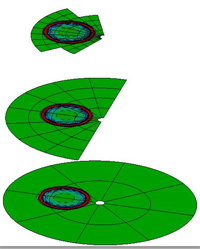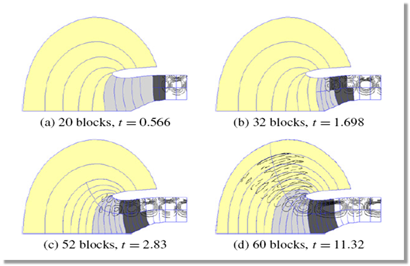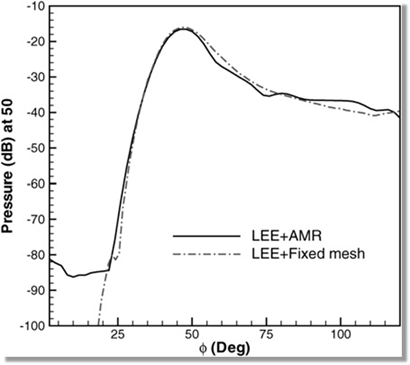Aircraft Engine Studies: Efficient computation of sound radiation on adaptively refined mesh
Last updated on April 5, 2022
A new computational tool was developed to efficiently predict sound radiation with block-structured adaptive mesh refinement (AMR) algorithm. The basic idea was to use grids of fine resolution only for the area where sound propagates. As a result the required grid number is reduced and the computational efficiency can be increased. The work includes parallel implementation of the AMR algorithm, a high-order solver, and linear models for acoustics. Practical problems, such as spinning modal radiation from an aero engine duct, were studied with the tool. Compared to the computation performed on a fixed mesh, the computational efficiency by the AMR method is increased extensively while the accuracy of the solution is still maintained.


